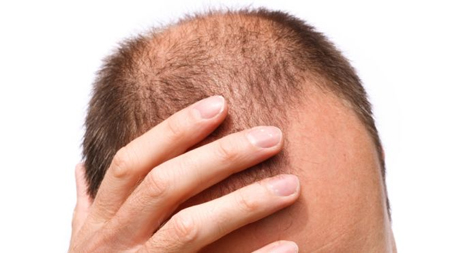 Washington, Nov 4: The force of downward pull caused by the gravity on the scalp may be key contributor to the events leading to progressive hair loss in male pattern baldness, a new study claims.
Washington, Nov 4: The force of downward pull caused by the gravity on the scalp may be key contributor to the events leading to progressive hair loss in male pattern baldness, a new study claims.
The effects of gravity may explain the apparently paradoxical effects of testosterone in male pattern baldness, or androgenic alopecia (AGA), researchers said.
"The new theory's unparallelled ability to explain even the details of the hair loss process and the formation of the pattern in AGA is apparent," said Dr Emin Tuncay Ustuner, a plastic surgeon in Ankara, Turkey.
Ustuner's "Gravity Theory" seeks to reconcile some puzzling observations related to the development and progression of AGA.
Balding areas of the scalp show increases in a potent form of testosterone called dihydrotestosterone (DHT), while drugs that block conversion of testosterone to DHT can slow hair loss.
In the scalp, DHT seems to cause hair follicles to become thinner. But in other areas of the body, such as the underarms and genital area, DHT and other male sex hormones promote thickening of hair follicles.
Ustuner believes, in youth, the scalp has sufficient fat tissue under the skin, and it is "capable of keeping itself well-hydrated," buffering the pressure on hair follicles.
But with ageing, the skin and underlying (subcutaneous) fat become thinner, and the pressure on the hair follicles increases.
Testosterone contributes to thinning of the subcutaneous fat. In women, estrogen prevents thinning of these cushioning tissues, at least until menopause.
Ageing and testosterone-related changes create 'vicious circle' leading to hair loss as the cushion decreases, the hair follicle must strive against higher pressure, requiring more testosterone to achieve normal growth, researchers said.
This "local demand" leads to a buildup of DHT levels in the scalp, but not in the bloodstream. Rising DHT levels cause further erosion of the subcutaneous fat - creating a "vicious circle," according to Ustuner.
The hair growth cycle accelerates in response to DHT, but it's not enough to overcome the increased pressure. Over time, the hair follicle becomes smaller and smaller, resulting in progressively increasing hair loss.
If the pressure created by the weight of the scalp is the cause of balding, then hair loss should occur at the top of the head - "This is exactly what happens in AGA," Ustuner noted.
The study was published in the journal Plastic and Reconstructive Surgery.





Comments
Add new comment